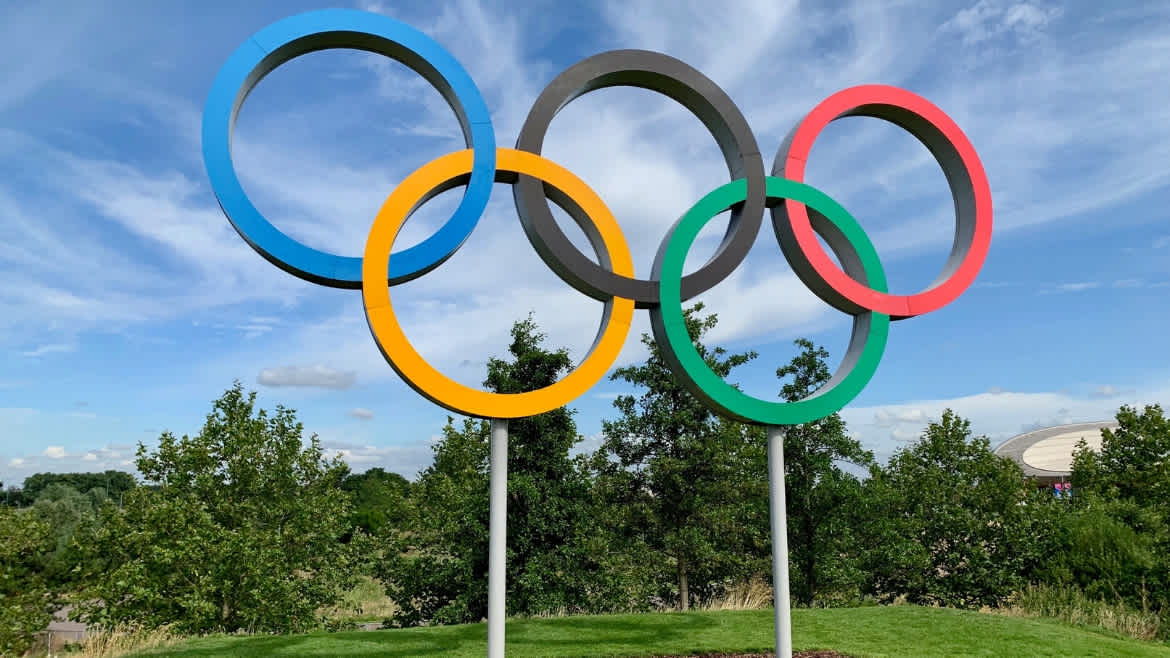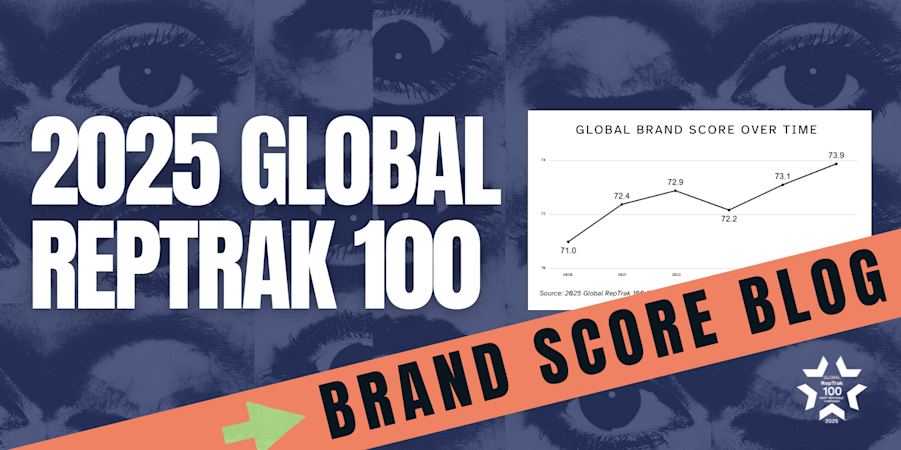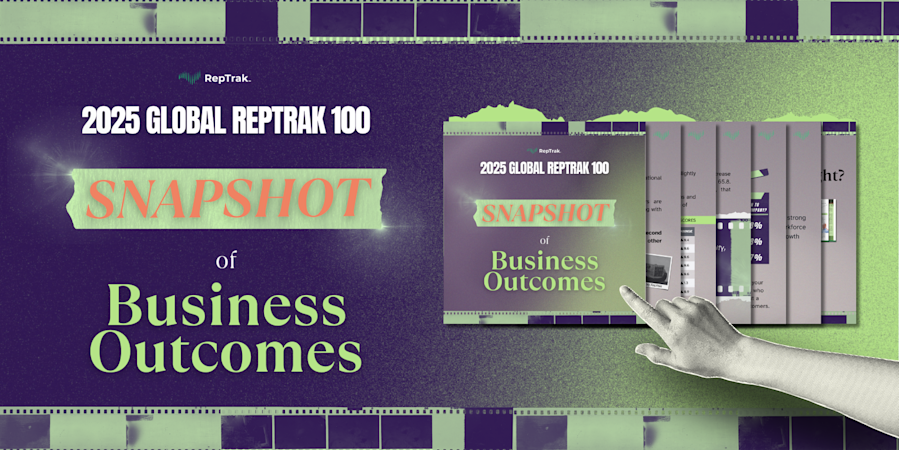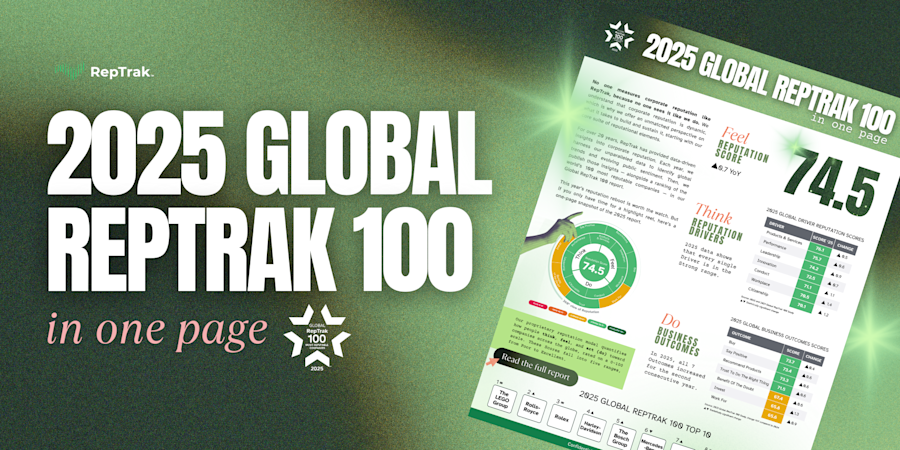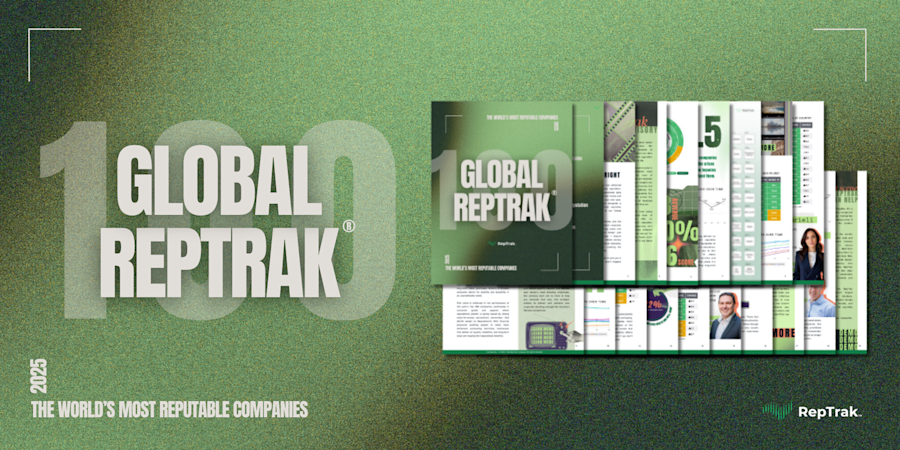What Is the Reputational Impact of Olympic Sponsorship?
Blog Post26 Feb, 2018
Olympic Games, like the most recent in PyeongChang, South Korea, present a unique opportunity for corporations to reach millions of fans with the end game of strengthening their brand and boosting sales through targeted messaging about their products and services.
Companies sponsoring the Olympics are increasingly investing in presenting the right message, particularly focusing on the brand behind the products, its values and culture, mission and brand purpose, and more importantly, the difference the company makes in the world.
The data scientists at The RepTrak Company recently analyzed the impact of Olympic sponsorship on the reputation of three large companies—P&G, Samsung, and Coca-Cola—each with a long history of investing in this global event.
What is corporate reputation?
Before we can understand reputational impact, we must first define reputation. Reputation is a perception of a company behind the products that people buy. This perception is created in the minds of stakeholders as a direct result of their exposure to the company through various channels – direct experience with the product, corporate communications, paid-for-ads, earned news media, and interactions with third parties such as friends and family members
Why does Olympic sponsorship matter?
The Olympic Games represent a rare opportunity for companies with recognized world-class brands to improve their reputation among consumers not only in the countries that host these events, but also in their home markets and globally. These companies tend to allocate significant advertising, marketing, and corporate communications budgets for Olympic sponsorship, hoping to positively influence consumer opinions in a way that directly affects purchasing behavior.
ROI of Olympic sponsorship: P&G, Samsung, Coca-Cola
We wanted to know whether multi-million dollar investments in Olympic sponsorship lead to any measurable impact on the reputation of these sponsors. We analyzed our data on the reputation of P&G, Samsung, and Coca-Cola before and after each of the last three Olympic events in London, Sochi, and Rio. We looked at both their home markets and hosting countries.
Here is what we found:
1. Olympics impact not just companies, but also countries that host the events. Among three countries that hosted London, Sochi and Rio Games, Russia was able to derive the largest benefits as its reputation increased significantly from a high average reputation score of 69.9 in 2013 to a strong score of 71.8 in 2014 and an excellent score of 82.3 in 2015.
The U.K.’s reputation improved considerably between 2011 (high average score of 68.2) and 2012 (strong score of 73.2) but was not able to maintain these gains in 2013 as its reputation declined to a strong 70.9.
Brazil was the only country where the Olympic Games had no positive impact on reputation. This was largely due to the deep political and economic crisis that paralyzed the country while the Rio Games took place.
2. The economic impact of the Olympic Games is questionable. Among the three companies measured, only P&G exhibited positive momentum post-Sochi, but there was no apparent reputational lift associated with the Olympics for Samsung and Coca-Cola. Similarly, the business impact of the Olympics was not clear as we could not establish strong connections with the changes in global sales of the three companies. Coca-Cola in particular was not able to use its investments in Olympic sponsorship during the period of 2011-2016 to its advantage—both Coca-Cola’s sales and reputation score declined significantly during this period.
3. In their home countries, summer Olympics seem to have a larger impact on reputation of the companies than the winter Games do. Both P&G and Samsung benefited from London and Rio sponsorship significantly as their reputation improved by several points from the year preceding the events in the U.S. and South Korea respectively. Sochi games on the other hand did not have any positive effect on these two companies. Coca-Cola was the only exception as it managed to derive benefits from all three games leading to a large lift in its reputation in the U.S. in 2012, 2014 and to a lesser degree in 2016.
4. In the countries hosting the Games, the reputations of the three companies benefited more from Sochi and Rio Olympics than from the London Games. During the London Olympics, none of the companies achieved increases in their reputation scores in the U.K. market between 2011 and 2012. For Coca-Cola and P&G, the scores in the U.K. actually declined by several points during this period. In Russia and Brazil, on the other hand, Samsung and P&G experienced some major improvements in 2014 and 2016. Coca-Cola was the only company that did not benefit from the Games in any of the three countries.
5. Olympic sponsorship helped to significantly improve consumers’ perceptions of product quality which in turn resulted in better reputation overall. This was particularly the case for P&G and Samsung in Russia and Brazil where we saw strong correlations between the positive changes in perceptions of the companies’ products on one hand and the emotional feeling about these companies on the other.
6. Companies that managed to enhance their reputation as a result of Olympic sponsorship also saw major increases on the merits of Governance and Citizenship. Consumers saw P&G in Brazil as more involved in making the world a better place while Samsung was perceived as more ethical and transparent in Brazil. Both metrics of Governance and Citizenship were key for enhanced perceptions of P&G and Samsung during the Rio Games.
7. Olympic-sized actions matter as much as the words. Coca-Cola failed to deliver on expectations it created by promoting its “share a Coke” campaign when it refused to speak out against the Russian anti-gay legislation that was passed during the 2014 Sochi Games. Moreover, the company caused further criticism and wide protests after it decided to ban the word “gay” from its customizable “share a Coke” function on its website. As a result of such negative backlash, Coca-Cola’s reputation dropped significantly both in Russia and the U.S. within a year after the Sochi Games.
8. Messages that tie corporate brand to products have impact. Despite some considerable reputational improvements during the Olympic games, companies struggled to translate this positive momentum into the long-term gains both in their home markets and in the countries hosting the events. Within a year after the Games, companies saw their reputation scores fall back to the pre-sponsorship level. P&G was the only company that enjoyed the positive effect of the Rio Olympics on its reputation in Brazil in 2017. It has been using this campaign consistently in London, Sochi, and Rio Games. P&Gs “Thank you, Mom” initiative linked its corporate brand to its products and was the focus of P&G’s corporate social responsibility (CSR) strategy throughout the whole period between the Games ensuring continuity and high impact.
“We see how strong moms are in every facet of their lives, and how their children draw on that strength as they grow. Through our campaign, we invite everyone to join us in saying ‘thank you’ to mums for the role they play in raising strong children.” — Marc Pritchard, P&G Chief Brand Officer
The “Olympic Effect”
While in many instances companies who choose to sponsor the Olympic Games do see their reputation benefit in the short run, they struggle to maintain those gains once the Olympic events are over. The “Olympic effect” does not last because companies that sponsor them scale back their budgets and significantly reduce their advertising, marketing, and corporate communications efforts within the months or even weeks after the events’ completion.
Continuous focus on product quality, establishing an authentic connection with the audience on a deeper emotional level, and building the Olympic campaign around the company’s broader brand purpose objectives can help to achieve significant reputational gains from the Olympics. The more these CSR initiatives can be pursued independently and have a life of their own, the more effective they will be in terms of maintaining and further enhancing the companies’ reputation in the long run.
Jafar Alakbarov Consulting Director The RepTrak Company
